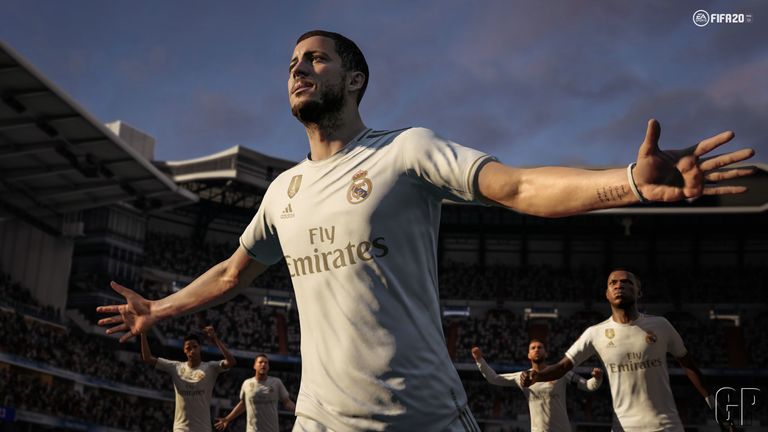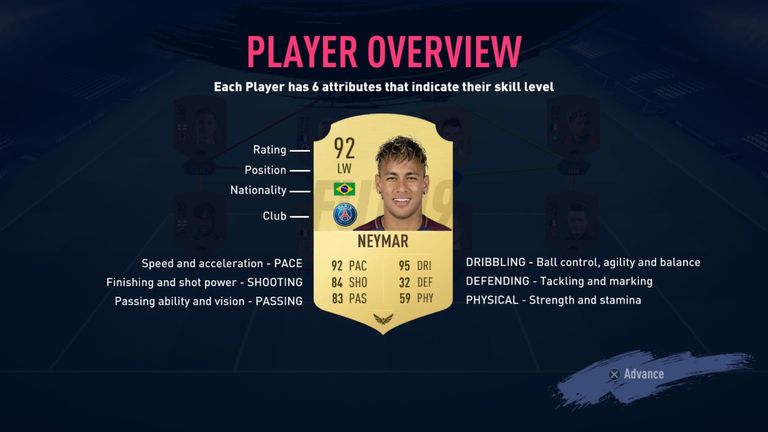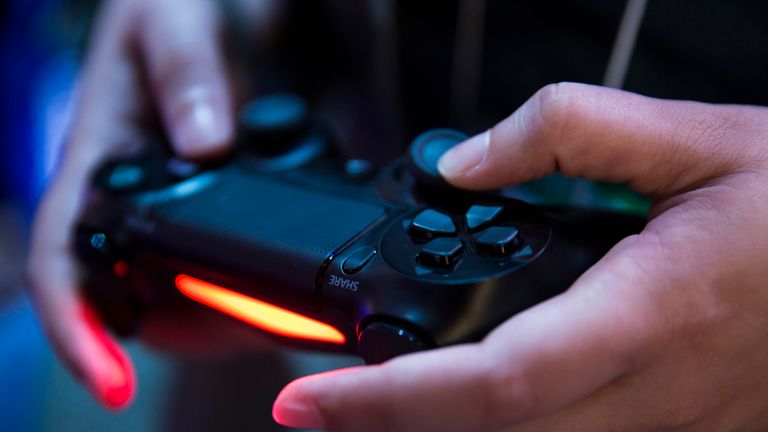'Loot boxes': Call to class mystery in-game purchases as gambling to protect children
Kids are spending hundreds of pounds "chasing their losses" on the boxes in the hope of uncovering something of huge value.
Tuesday 22 October 2019 12:37, UK
"Loot boxes" should be classed as gambling amid concerns gaming companies are exploiting young players, the children's commissioner for England has said.
Children are spending hundreds of pounds "chasing their losses" on them, Anne Longfield's report said.
Loot boxes are a stash of mystery in-game items, tempting players with the chance that any of the crates and packs they buy could contain something of huge value.
The contents of the box are typically not known until it is bought and the player opens it.
Last month, MPs called for them to be banned and console makers Sony, Microsoft and Nintendo recently pledged to force game publishers to disclose the likelihood of particular items being discovered in loot boxes.
However, currently, video game packaging only sports an icon warning of the potential for extra purchases, which do not always involve an element of chance.
Ms Longfield, who talked to 29 young gamers aged 10 to 16, said: "Children have told us they worry they are gambling when they buy loot boxes, and it's clear some children are spending hundreds of pounds chasing their losses.
"I want the government to classify loot boxes in games like FIFA as a form of gambling. A maximum daily spend limit for children would also be reassuring for parents and children themselves.
"With 93% of children in the UK playing video games, it is vital that the enjoyment they get comes with tighter rules that protect them from straying into gambling.
"Playing games online can be rewarding and exciting and help children to develop strategic skills and friendships, but they are also open to exploitation by games companies who play on their need to keep up with friends and to advance to further stages of a game by encouraging children to spend on loot boxes."
While acknowledging they provide part of the appeal to gamers, the report warned some children felt "pressured to spend money by the way the game was set up, or by elements of social play".
"For these children, spending money has become a normalised part of gaming," it added.
The study asked children who play games like FIFA, Fortnite and Roblox what they love about it and what worries them.
Dr Jo Twist, chief executive of Ukie, a trade body for the UK gaming industry, acknowledged the industry needed to help educate players, parents and carers about safe and sensible play habits.
She said the sector has "put in place extensive tools and settings on game platforms that allow parents to limit the time and money spent by children in games already."
The report said gaming is often a part of childrens' social lives where they play with friends and learn new skills.
But it warns youngsters can feel embarrassed if they cannot afford to buy new items, and that they do not feel in control of how long they spend playing.






